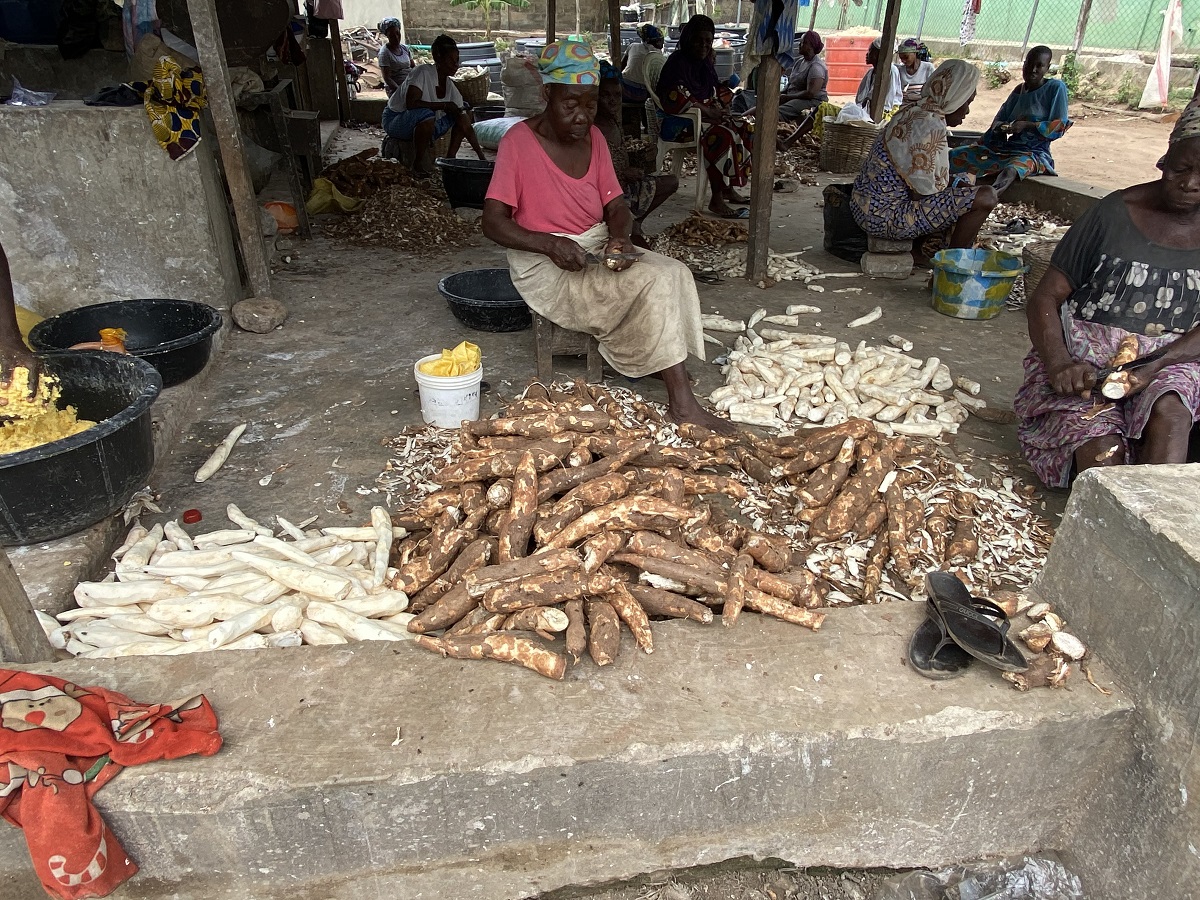
With over 200 million people, Nigeria has the largest population on the African continent, which is projected to double over the next 30 years. Current crop production is barely keeping up with these rates of population growth. With weak national food controls, and high levels of postharvest physical, nutritional and quality losses due to poor infrastructure, sub-optimal marketing information systems, and increased food consumption outside the home, how might closing the food security gap be achieved?
This requires a transformation of national food systems, and of ‘food environments’ – which encompass social, physical, economic and political factors involving food availability, affordability, accessibility and acceptability. The Global Alliance for Improved Nutrition (GAIN) aims to transform food systems so that they deliver more nutritious foods for all people, especially the most vulnerable. Their aim is to lay the foundations for systemic improvements, which include opportunities for food-related activities of women and youth that address their specific needs and make their livelihoods more resilient.
GAIN has targeted Nigeria’s four staple crop value chains – rice, maize, cassava, sweetpotatoes – for research and development. The functioning of these crop value chains is not homogeneous across Nigeria and so prior to project design, GAIN required a better understanding of the landscape in four key states – Benue, Kaduna, Nasarawa and Oyo – involving 16 local government areas. To aid with this preliminary work, NRI supported an appraisal of biofortification (where crops are bred or particular agronomic practices are adopted to increase the crop’s nutritional value from a national or global baseline). In 2021, NRI led formative research to help design project implementation. This was coordinated by NRI’s Dr Louise Abayomi, a postharvest and food safety specialist, and carried out with NRI colleagues, local partners the Federal University of Agriculture (FUNAAB), Nigeria, Agricultural Development Programmes and nutrition officers.
Key findings relate to emerging trends in consumption habits in the target areas, and more specifically, in contexts where most workers are eating outside the home. This situation has implications for addressing food safety practices during production, processing, marketing and food preparation, as well as access to healthy diets and the need for both general and targeted behavioural change communication strategies to inform consumers and sellers in traditional markets, their suppliers, and influence habits. The team tested key assumptions (e.g. that biofortified maize, orange-fleshed sweetpotatoes and yellow cassava can easily be substituted for the traditional varieties), projected growth trends, explored consumer acceptability of biofortified staple crops, and preferred traits by processors.
The successful outcome from this formative research led to the design of the project’s second phase, consisting of strategies for capacity strengthening of micro, small and medium entrepreneurs, and for selected upstream and downstream innovators to act as champions in facilitation, advocacy, ‘proof of concept’ and ‘scaling’. Behavioural change communication will also feature strongly in driving a shift to safer, more diverse, and nutritious diets. Policy coherence across national ministries including finance was identified as an important component within the ‘enabling food environment’.

